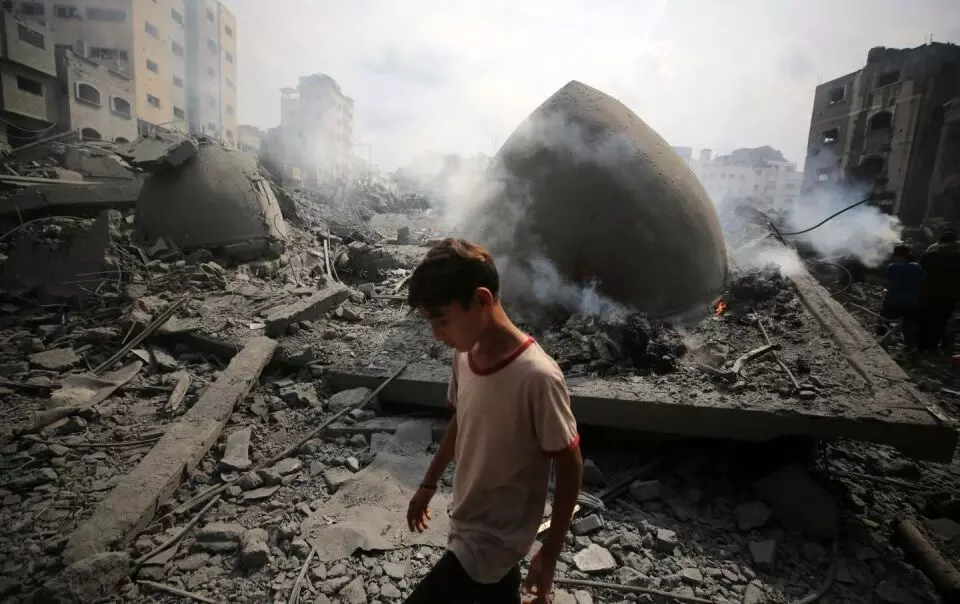
US veto sparks global outcry as Israel intensifies bombardment
text_fieldsAt the United Nations Security Council (UNSC), the United States has faced widespread criticism for vetoing a resolution calling for an immediate humanitarian ceasefire in the Gaza conflict.
The move has further escalated tensions in the region, where the death toll has surpassed 17,400 Palestinians and around 1,100 people in Israel since October 7.
The resolution, proposed by the United Arab Emirates and co-sponsored by 100 other countries, failed to pass as the U.S. exercised its veto power, drawing condemnation from world leaders, international rights groups, and UN officials.
Palestinian Prime Minister Mohammad Shtayyeh expressed his dismay, labelling the U.S. veto as "a disgrace and another blank cheque given to the occupying state to massacre, destroy and displace."
The sentiment was echoed by Palestine's UN envoy Riyad Mansour, who described the vote's outcome as "disastrous" and pleaded for global action against the ongoing war.
Hamas, the Palestinian political and militant group, strongly condemned the U.S. veto, labelling it "unethical and inhumane" and accusing the U.S. of direct participation in the killing of civilians.
In Israel, the response was divided. While Israel's UN ambassador Gilad Erdan did not directly address the UNSC after the vote, he stated in a release that a ceasefire would only be possible with the return of all hostages and the destruction of Hamas.
The United States, justifying its veto, argued that the draft resolution was a rushed and imbalanced text that would not contribute to tangible progress on the ground. Deputy U.S. Ambassador to the UN, Robert Wood, asserted, "We do not support this resolution's call for an unsustainable ceasefire that will only plant the seeds for the next war."
International organizations and human rights groups voiced strong criticism. Amnesty International's secretary-general, Agnes Callamard, condemned the U.S. veto, accusing it of displaying a "callous disregard for civilian suffering."
Doctors Without Borders (MSF) accused the U.S. of standing alone "against humanity," stating that the veto makes the U.S. complicit in the carnage in Gaza.
Human Rights Watch (HRW) raised concerns about the U.S. providing diplomatic cover for Israel's actions, stating that it risks complicity in war crimes. Former HRW executive director Kenneth Roth questioned whether the U.S. believes that pummelling Palestinian civilians is an effective way to defend against Hamas.
The United Kingdom, which abstained from the vote, cited the resolution's lack of condemnation for Hamas as the reason. Britain's UN ambassador Barbara Woodward emphasized the need for Israel to address the threat posed by Hamas within the bounds of international humanitarian law.
The international community, including China, Russia, France, Turkey, Iran, and other nations, voiced their opinions. China's representative to the UN, Zhang Jun, criticized the contradiction of claiming to care about lives in Gaza while condoning the continuation of fighting. Russia's ambassador Dmitry Polyanskiy accused the U.S. of issuing a death sentence to thousands in Palestine and Israel.






